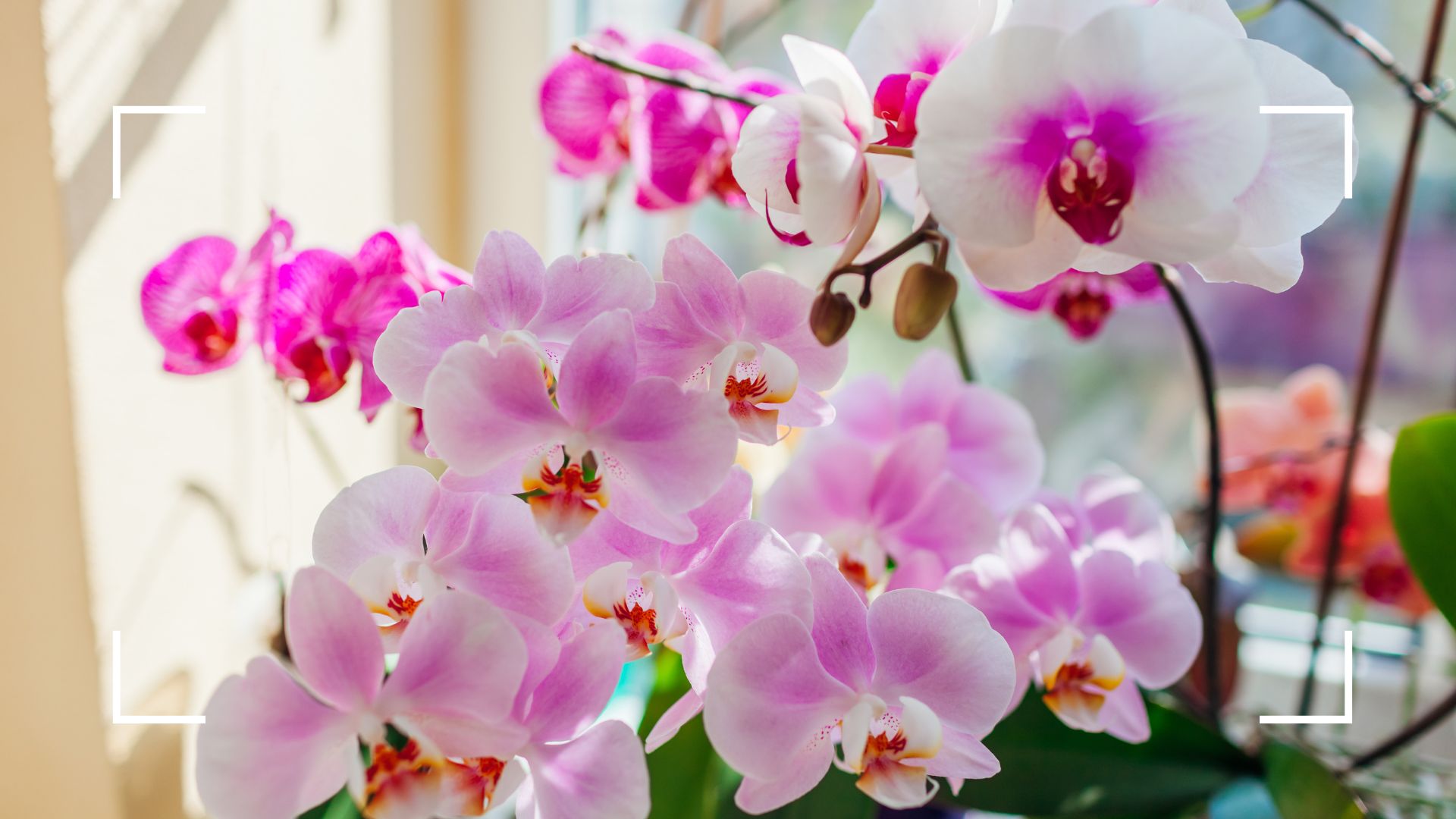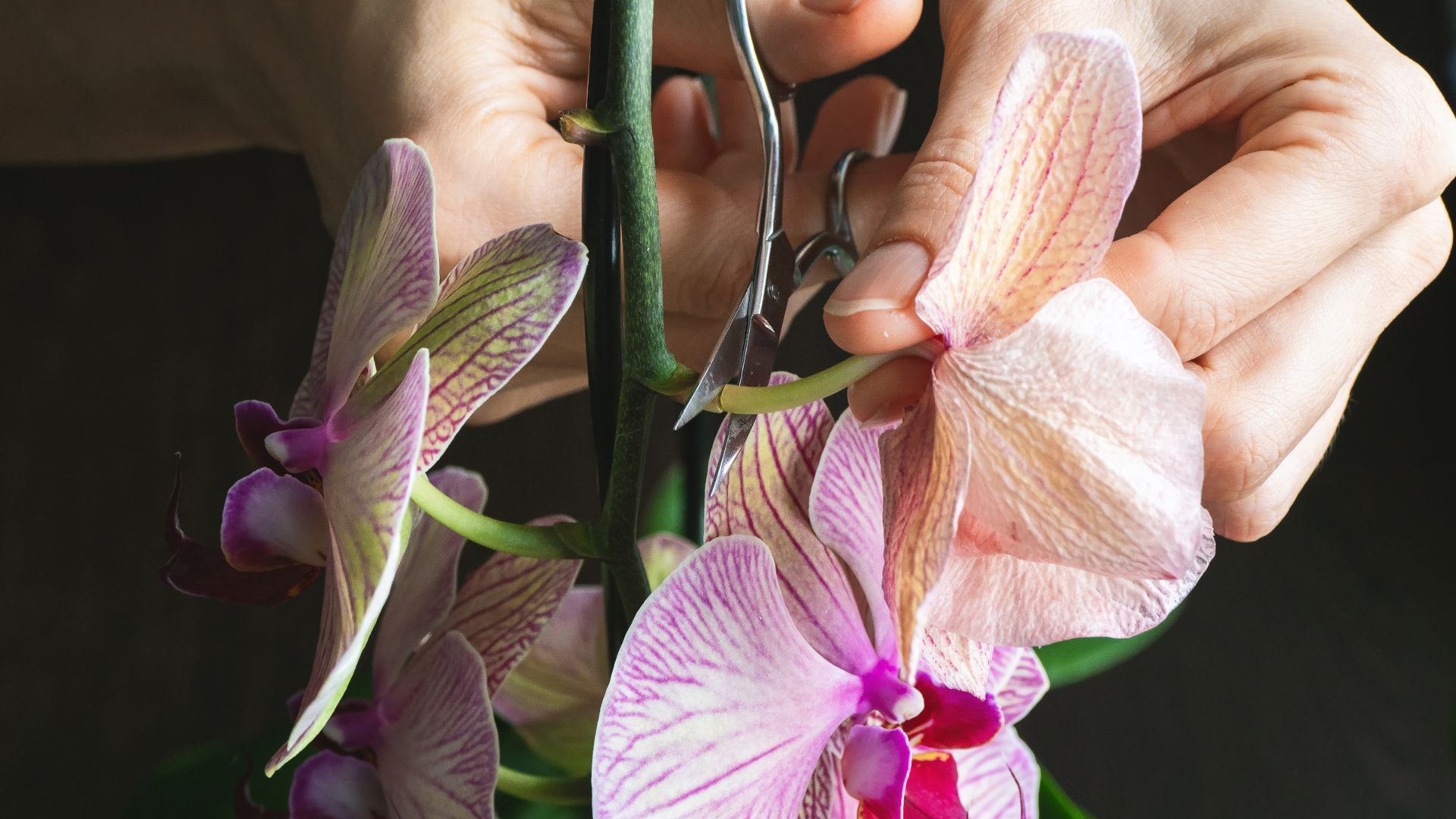
It can be quite upsetting to see your beautiful orchid's blooms drop off and not know the cause. However, there's no need to fear – horticultural experts offer assurance that this doesn't mean the end of the line for your beloved plant.
As one of the hardest plants to keep alive, orchids are temperamental at their best so when you see they've started to lose their flowers it can quickly instil panic. Caring for indoor plants can often leave you confused and feeling like a bad plant parent, but just because your orchid has lost its blooms doesn't mean it's dying.
We put it to the experts to find out what fallen blooms mean and if there's anything you can do to both prevent it and remedy it.
What to do with orchids after the blooms fall off: expert advice
When caring for an orchid, the last thing you want to see is its stunning flowers beginning to fall off. And whilst this may have you losing all hope for your once thriving plant, the experts say there is still hope.
"If you have a Phalaenopsis (moth orchid) you can either cut the spike back to just above the node (the small bumps on the stem) to encourage new blooms or cut the spike down to the base if it's brown and dried out. Dendrobiums and Cattleyas, for example, should be cut back to the base once the blooms have fallen off," explains Jane Dobbs, Lead Gardener at Allan's Gardeners.
Other things you can do include maintaining proper humidity levels and putting your orchid in indirect light as this will give the plant the best conditions for survival. Jane advises you to keep a look out for new growth like leaves or roots as this will indicate that your orchid is healthy and preparing for blooming.
Do orchids grow back after the flowers fall off?
Before you give up on your orchid completely and start buying only the easiest houseplants to keep alive, your plant can still grow its flowers back.

Jane explains, "After the flowers fall off, orchids can grow back and bloom again. When the blooms have dropped, the orchid enters a resting phase, where it conserves energy and prepares for the next blooming cycle. It will eventually bloom again with proper care, including appropriate light, water, humidity, and occasional fertilisation."
After trimming your orchid to the appropriate height, simply avoiding common houseplant mistakes and maintaining the right conditions will put you in good stead for achieving secondary blooms.
Why do orchid blooms fall off and how can you stop it?
Similar to why there are several reasons your orchid's leaves could be turning yellow, the falling of blooms can happen because of numerous things.
"Orchid blooms naturally fall off after they have completed their blooming cycle, which is normal," explains Petar Ivanov, plant and gardening expert at Fantastic Gardeners. "However, blooms may fall off prematurely due to temperature changes - extreme temperature fluctuations, either too hot or too cold, can cause flowers to drop."
Aside from this Petar also explains that low humidity can be a cause too, he says that if the air is too dry then the blooms may not last long. How often you water your orchid can also be the culprit, over or underwatering can stress the plant and lead the bloom to drop.
Finally, a lack of light can result in premature dropping as orchids need constant indirect light to be strong and keep their flowers. To stop any bloom dropping Petar recommends maintaining a stable environment for your plant and ensuring all its needs are met.
FAQs
Is my orchid dead If all the flowers have fallen off?

Before you give up on being a plant parent or completely change your houseplant watering routine, it's important to know that just because the blooms have dropped doesn't mean your orchid is dead.
"No, your orchid is not dead if all the flowers have fallen off. The loss of flowers is a normal part of the orchid's life cycle. The plant can continue to live and produce new blooms in the future with proper care," explains Petar.
He goes on to say that as long as the leaves are healthy and the roots are firm the orchid is alive and well. Just make sure you know how to repot an orchid so it's got room to grow when the time comes.
Now you know your orchid is not on its way out why not try an even more challenging species and learn how to care for a bonsai tree?







